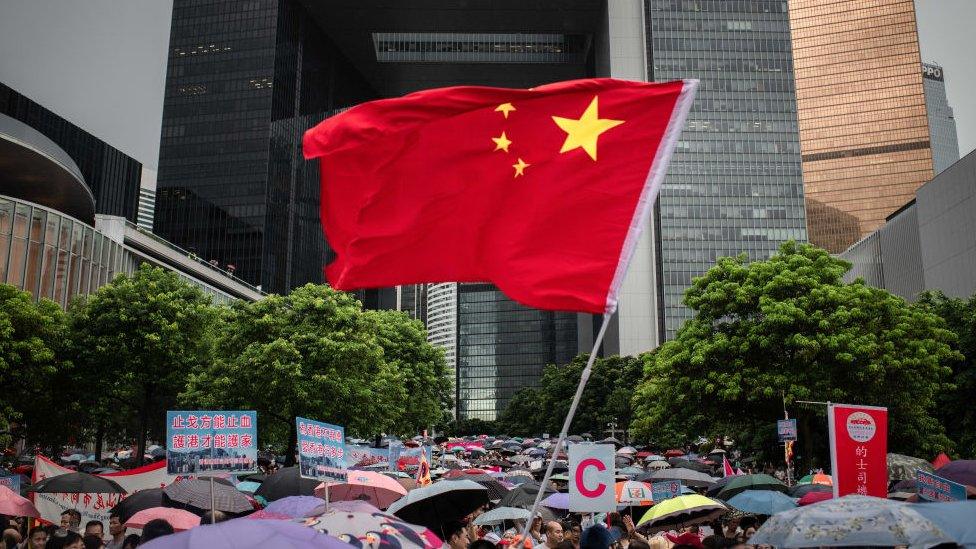Carrie Lam: Hong Kong leader 'never tendered resignation to Beijing'
- Published
Leaked Carrie Lam recording: 'If I have a choice, the first thing [I would do] is to quit'
Hong Kong leader Carrie Lam has denied ever offering to resign, after audio was leaked of her saying she would if she could.
On Monday, a recording of a private meeting emerged where she is heard saying: "If I have a choice, the first thing is to quit., external"
She said on Tuesday she had "never tendered any resignation", but did not deny the authenticity of the recording.
Hong Kong has seen months of anti-government protests.
The protests were sparked by changes to a law that would allow extradition to mainland China, but have since widened to include calls for an independent inquiry into police brutality and demands for greater democracy.
Ms Lam, who introduced the now-shelved bill, has been the target of much of the protesters' anger.
What's in the leaked audio?
The audio, published by Reuters on Monday, was recorded at a private meeting of business leaders that Ms Lam attended last week.
In it she is heard blaming herself for igniting the territory's political crisis, saying it was unforgiveable of her to have caused such huge havoc.
"If I have a choice, the first thing is to quit, having made a deep apology, is to step down," the voice on the tape says.
She says she has little power to handle the city's current crisis, explaining she has to serve both Beijing and Hong Kong.
"The political room for the chief executive who, unfortunately, has to serve two masters by constitution, that is the central people's government and the people of Hong Kong, that political room for manoeuvring is very, very, very limited," she says on the tape.
She also says in the recording that China does not have a deadline by which it wants to solve the crisis in Hong Kong, and that Chinese authorities would not send in troops to end the protests.
What was her response on Tuesday?
At a weekly press conference, Ms Lam was asked about the leaked audio.
She said it was "totally unacceptable" that her remarks made in private had been recorded and passed to the media.
"I have never tendered a resignation to the Central People's Government," the chief executive told reporters. "I have not even contemplated to discuss a resignation with the Central People's Government."
"The choice of not resigning is my own choice," she said, insisting she wanted "to help Hong Kong in a very difficult situation and to serve the people of Hong Kong".
She also denied speculation that she or her government "had any role" in the leak, following suggestions it could have been orchestrated to regain sympathy and restore some of the public backing she has lost over past weeks.
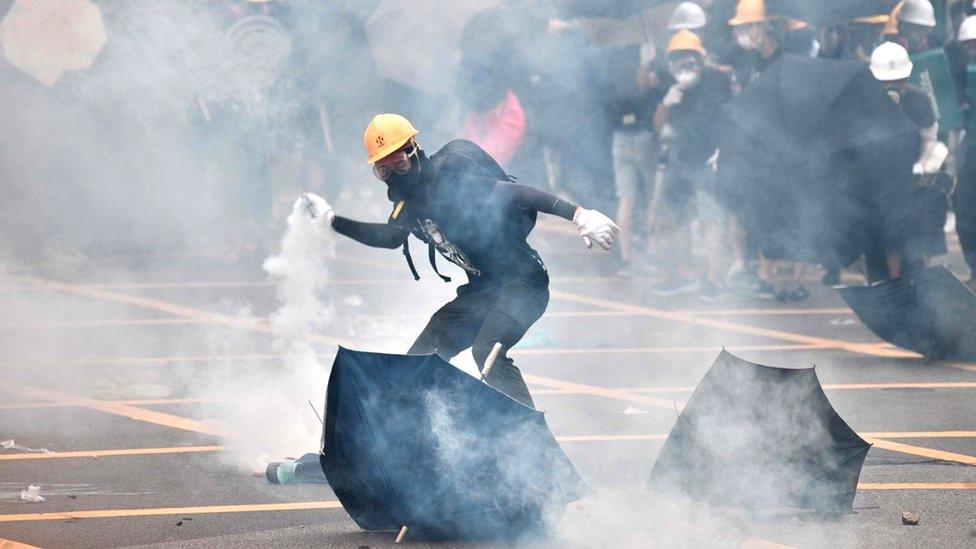
Mostly peaceful rallies have sometimes escalated into violent clashes with police
Ms Lam said her government was "very anxious" about the violence in the city and that she felt "most Hong Kong people don't want to see it".
In a press conference on Tuesday, China's top policy office in Hong Kong maintained its support for Ms Lam.
"We firmly support Carrie Lam," said Yang Guang, a spokesman for the Hong Kong and Macao Affairs Office (HKMAO), adding that the question of Hong Kong's independence was "not up for discussion".
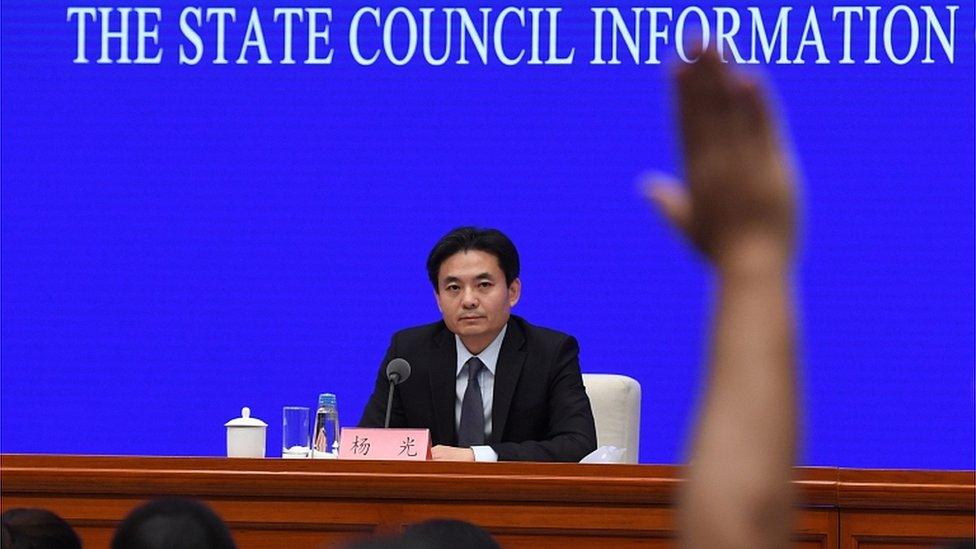
HKMAO spokesman Yang Guang warned that China would "never sit idly by" if protests got out of control
Meanwhile, pro-democracy activists appealed to Taiwan to back their campaign and offer protection to protesters.
Speaking in Taipei, leading protester Joshua Wong urged Taiwan to allow protesters to seek political asylum on the island, but said he himself would not seek asylum.
Fellow student leader Lester Shum warned that China would "definitely want to take over Taiwan after it takes over Hong Kong".
Beijing considers Taiwan to be part of China and has suggested it be governed under a "one country, two systems" structure similar to Hong Kong.
What's the latest on the protests?
Hong Kong is now in its 14th successive week of demonstrations.
On Tuesday, thousands of secondary school and university students are expected to boycott classes for a second day.
Students have boycotted classes as protests continue into their 14th week
The boycott is in part organised by political party Demosisto. The party said on Tuesday that its chairperson Ivan Lam was "taken away by officers" upon arrival at Hong Kong airport.
"He will be arrested with inciting and participating in an unauthorized assembly," Demosisto said on its Twitter account.
Demonstrations over the weekend saw some of the worst violence in weeks between protesters and police.
Protesters threw petrol bombs, lit fires and attacked the city's parliament building, while police used tear gas, rubber bullets and water cannon, and fired live warning shots.
In another development, the Spanish fashion chain Zara strongly denied supporting the protests after being criticised in Chinese state media for closing some of its Hong Kong stores during Monday's demonstrations.
In a statement on Tuesday, Zara expressed support for China's sovereignty over Hong Kong and said it had "always supported the one country, two systems" policy.
China's Global Times newspaper had demanded "a solemn explanation" from the retailer. Some reports said stores delayed opening after staff struggled to get in because of the protests.

A guide to the Hong Kong protests
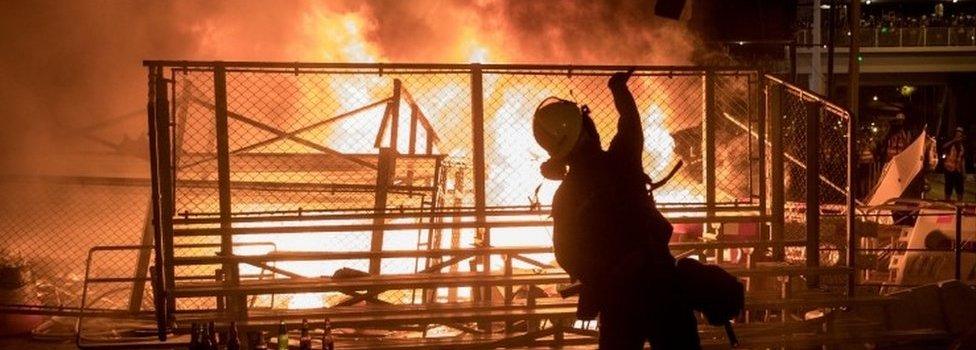
Summary of the protests in 100 and 500 words
All the context you need on the protests
Timeline of events so far
The background to the protests in video
More on Hong Kong's history
Profile of Hong Kong leader Carrie Lam
- Published2 September 2019
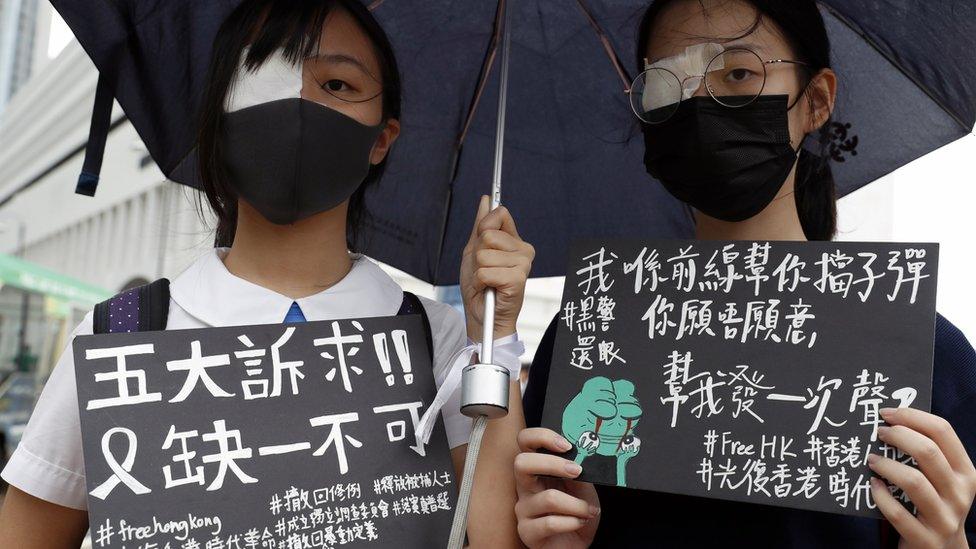
- Published2 September 2019
- Published16 August 2019
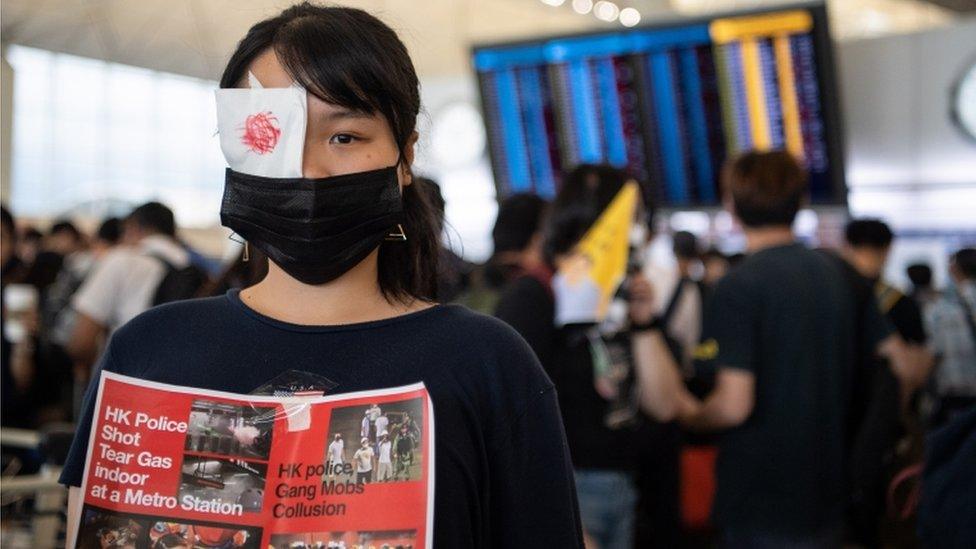
- Published14 August 2019
